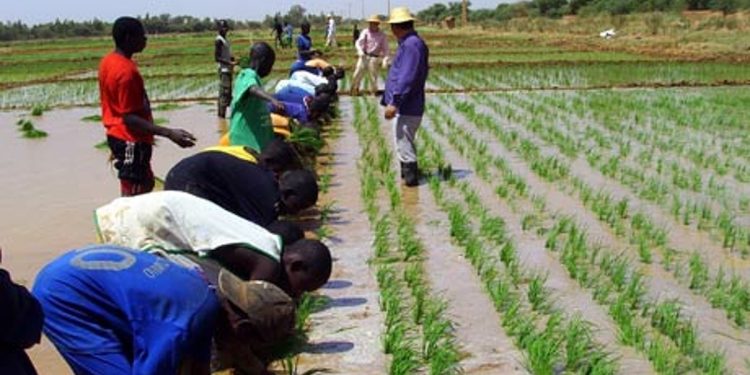Rice millers kick against new benchmark values policy
The association had long advocated for a reversal of the discounts, as they argued that the implementation of the 50% benchmark policy over the last two years has led to the shutdown of a number of local rice mills.
- Advertisement -
The Rice Millers Association of Ghana, has described governments new directive to adjust the benchmark value policy to 30 percent discount for all goods and 10 percent for vehicles as a political move which goes against the country’s industrialization agenda.
They argue the move will ultimately collapse the local rice industry.
- Advertisement -
The association had long advocated for a reversal of the discounts, as they argued that the implementation of the 50% benchmark policy over the last two years has led to the shutdown of a number of local rice mills.
- Advertisement -
The benchmark value reduction policy, according to them, made imported rice cheaper by 25%, thus contributing to the competitiveness of local rice on the market.
Local rice farmers in 2019 began to gain some ground after the Ghana Rice Campaign spearheaded by CEO of Citi FM and Citi TV, Samuel Attah-Mensah.
The benchmark value reduction policy was however introduced in that same year. The news of the reversal of the policy announced in the 2022 budget was therefore welcomed by local rice farmers, who were hopeful of fair competition.
- Advertisement -
They now argue that their hopes of growing the local rice industry have once again been dashed with government’s latest decision to implement a 30 percent discount on all goods and a 10 percent on vehicles.
In an interview with Citi Business News, Convener of the rice millers association of Ghana, Yaw Adu Poku said members of his association will continue to do all they can to protect the local rice industry.
“The country needs the kind of attitude where that one billion dollar worth of rice that is imported into the country should shift to the local economy, that will immediately put about seven to eight billion cedis into the Ghanaian economy, and it will go all the way to from the farmer to the distributor, just imagine it and then the pride of eating your own made in Ghana rice, a variety that has been improved upon by the academicians. Let the people feel proud eating made in Ghana rice”.
“The association is writing a statement that we will bring out. We are not in any opposition to government; we are not trying to fight the government. We are simply telling the government that it is not a good policy, so scrap it and keep the revenue it is giving away”.
Source: Citibusinessnews
- Advertisement -


